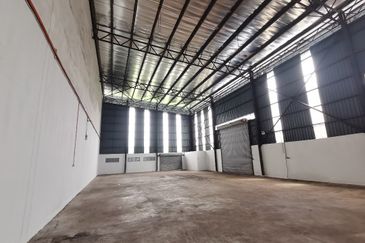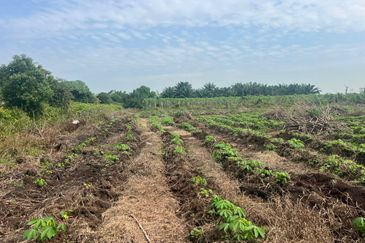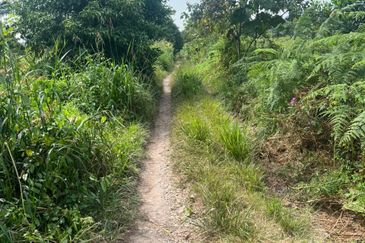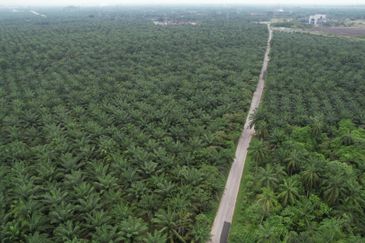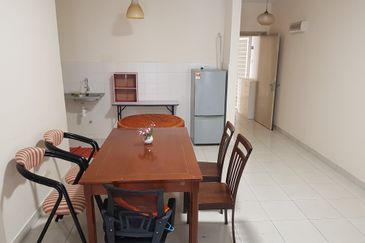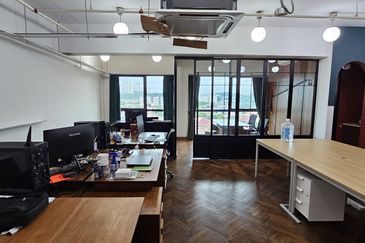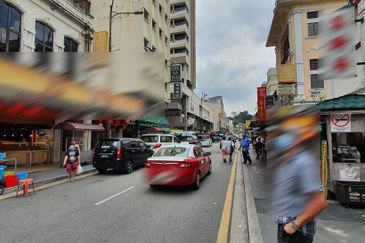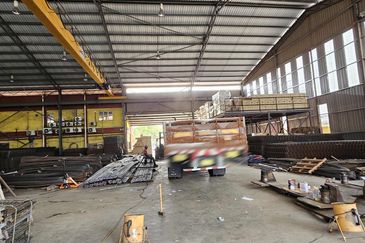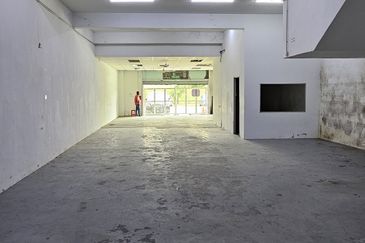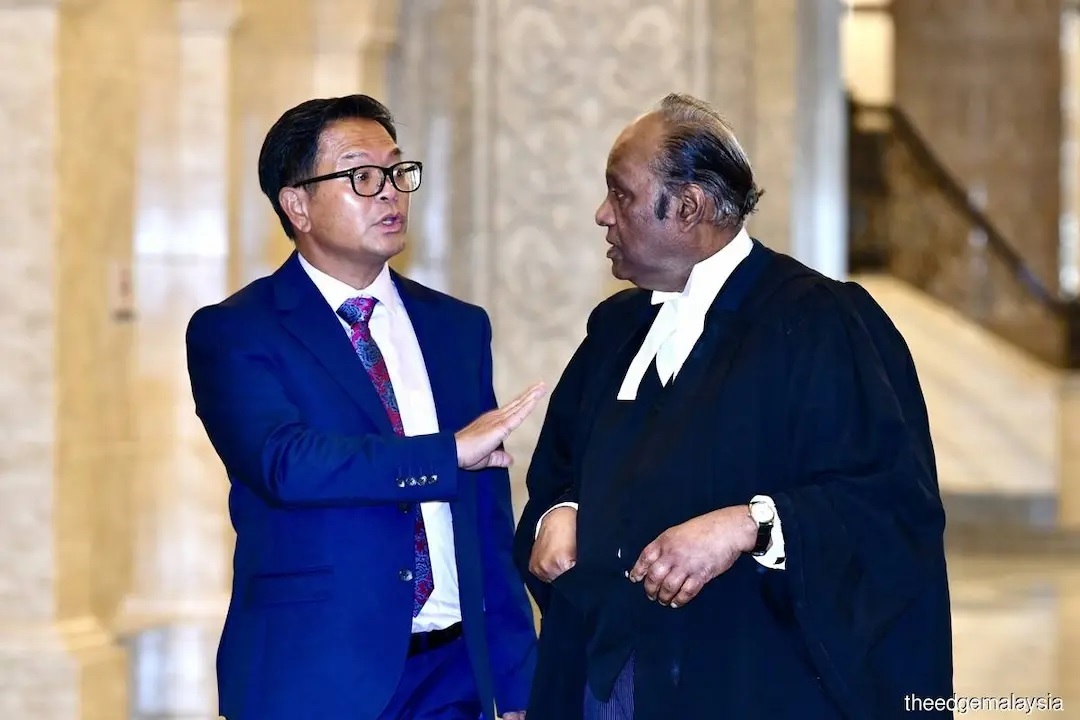
- Following the long-standing pre-Merdeka land dispute case, a three-member Court of Appeal (COA) bench hearing two separate appeals by Semantan Estate and one appeal by the government over having to transfer the land to the company free of encumbrances, as ruled by the High Court on Aug 7, now wants both parties to submit further on Feb 20 and 21 next year on three issues.
PUTRAJAYA (Nov 7): The federal government on Thursday disputed Semantan Estate (1952) Sdn Bhd’s possession of the 263.72-acre (106.72-hectare) ‘Duta Enclave’ prime land, saying that the company, which is presently under liquidators’ control, is only entitled to monetary compensation based on the Government Proceedings Act 1956 (GPA) and the Specific Relief Act 1950 (SRA).
However, Semantan Estate’s counsel Datuk Dr Cyrus Das, who appeared with Ira Biswas, said their client is entitled to vacant possession of the land as per the 2009 High Court decision, where it was ruled that the government had trespassed on the land, and hence, Semantan Estate is entitled to possession of the land plus compensation.
Following the long-standing pre-Merdeka land dispute case, a three-member Court of Appeal (COA) bench hearing two separate appeals by Semantan Estate and one appeal by the government over having to transfer the land to the company free of encumbrances, as ruled by the High Court on Aug 7, now wants both parties to submit further on Feb 20 and 21 next year on three issues.
This follows Cyrus indicating that Semantan Estate would challenge the constitutionality of the two pre-Merdeka laws brought up by the government in not granting his client possession of the land.
The three-member COA bench led by Datuk Lee Swee Seng, along with Datuk Azimah Omar and Datuk Wan Ahmad Farid Wan Salleh, then formulated the three questions which they want further submissions on, which are:
- Whether Section 29(1)(b) of the GPA and Section 8(3) of the SRA prohibit the court from granting the mandamus order and the Section 417 of the National Land Code (NLC) order to give possession pursuant to the Aug 7, 2024 High Court order, on whether these two provisions — Section 29(1) and Section 8(3) — are unconstitutional as being ultra vires (beyond the powers of) Article 13 (Rights to Property) of the Federal Constitution;
- Whether, in lieu of an order for transfer of the title to Semantan Estate and delivery of possession, this COA may order compensation with the directive that the evaluation that the compensation be based on is at the current market value of the land, or whether the compensation ordered should be at the date of the possession taken by the commissioner of land;
- Whether the COA has the jurisdiction to remit this case to the High Court with directions to make full assessment of damages for compensation under the Rules of Court or an appeal under Section 417 of the NLC.
It is to be noted that Section 29(1)(b) of the GPA stipulates that in any proceedings against the government for the recovery of land or other property, the court shall not make an order for the recovery of the land or the delivery of the property, but may, in lieu thereof, make an order declaring that the plaintiff is entitled, as against the government, to the land or property or to the possession thereof.
Section 8 of the SRA stipulates that if any person is dispossessed without his consent of immovable property otherwise than in due course of law, he or any person claiming through him may, by suit, recover possession thereof, notwithstanding any other title that may be set up in the suit, but Subsection 3 stipulates no proceeding can be done on the government.
In sum, these two pre-Merdeka provisions state that the court cannot make an order to recover the land from what was acquired by the government, as no one can bring any proceeding (suit) against the government for the acquisition of land.
This is what Cyrus and Semantan Estate are contesting as unconstitutional, being in violation of Article 13 of the Federal Constitution, as senior federal counsels (SFCs) Shamsul Bolhassan and Ahmad Hanir Hambaly @ Arwi argued that the company is entitled to compensation only, and not the land.

Section 417 of the NLC stipulates that the court or a judge may, by order, direct the Registrar or any Land Administrator to do all such things as may be necessary to give effect to any judgement or order given or made in any proceedings relating to land, and it shall be the duty of the Registrar or Land Administrator to comply with the order forthwith.
This was the provision used by the High Court on Aug 7 to give effect to the 2009 High Court decision that ordered the transfer of land from the government to Semantan Estate.
Negotiations still ongoing
The SFCs representing the government also informed the court that the negotiations for a settlement are still ongoing.
When asked by Lee, the liquidator from Grant Thornton for Semantan Estate, Dr Jim Lai, who was also present in the court, said that the government had offered compensation of RM5 billion cash, even though the market price of the property stood at RM12 billion.
With this, Lee said the parties could still undertake negotiations to settle the matter amicably before the Feb 20 hearing date.
Lee then fixed Jan 15 for the parties to file additional submissions on the three issues, and a reply to those submissions by Feb 17.
The SFCs argued that the government could not hand over the land, as there is already the Duta road (renamed Jalan Tuanku Abdul Halim), and a bypass over there, plus the addition of government buildings, and that is why they insist on only paying compensation.
They were replying to Semantan Estate’s appeal over the dismissal of their judicial review in 2021, for a mandamus order to reacquire the land.
Cyrus earlier told the court that the 2009 High Court decision by judge Zura Yahya had ruled the government had trespassed on the said land. Zura’s ruling was upheld by the Court of Appeal and the Federal Court in 2012, and the government’s review of the decision was also dismissed in 2017.
He further argued that while the acquisition was made under the guise of transforming the land for possible use of embassies, the government instead used it to erect government buildings.
“The government had taken wrongful possession of the land for not its [intended] purpose, and they should return the land voluntarily,” Cyrus said, adding that the High Court decision in 2021, in not granting the judicial review for a mandamus order, was in breach of natural justice, and this court should allow Semantan Estate’s appeal.
Besides the major road, many government and buildings of national importance sit on the prime land, which was acquired in 1956. These include 13 government buildings, including the National Examinations Syndicate, the Education Department, the Malaysian Institute of Integrity, the Inland Revenue Board, the National Archives, the Malaysian Anti-Corruption Commission Academy, as well as the Federal Territory Mosque.
The Jalan Duta Sports Complex — comprising the National Tennis Centre, Squash Centre, and the Tun Razak Hockey Stadium — also sit on this land.
Semantan Estate was founded by Eng Lian Group and Ng Chin Siu & Sons Rubber Estates Sdn Bhd — the vehicles of two prominent land-owning families.
Eng Lian Group is mostly known for developing Bangsar in Kuala Lumpur from the 1970s. The group’s commercial and retail showcase — Bangsar Village — sits prominently there. Ng Chin Siu & Sons Rubber Estates, meanwhile, has kept a low profile and has not done many developments in recent years. Most of Desa Sri Hartamas and Mont'Kiara once belonged to it.
Transfer of land granted on Aug 7, but stay extended by COA
On Aug 7 this year, Kuala Lumpur High Court judge Datuk Ahmad Shahrir Mohd Salleh had allowed Semantan Estate’s application and directed the Commissioner of Land and the Federal Territory Land Registrar to transfer ownership of the land, free of any encumbrances, from the government to Semantan Estate within three months.
However, on Sept 12, Ahmad Shahrir granted a stay of the implementation of his decision, pending an appeal by the government.
On Thursday, Lee also extended the stay order, despite Semantan Estate appealing against Ahmad Shahrir’s Sept 12 decision pending the continuation of the hearing.
Prior to this, on Oct 29, Prime Minister Datuk Seri Anwar Ibrahim told Parliament that the government might consider handing over (handing back) undeveloped land within the disputed Duta Enclave.
This follows the High Court’s ruling that the Duta Enclave should be returned to Semantan Estate, effectively declaring the government’s 1956 acquisition of the land as invalid.
While emphasising that the government is appealing against the court’s decision on the land title transfer, Anwar noted that negotiations with Semantan Estate are ongoing.
“The secretary general of the Treasury has held two rounds of discussions with them. We may consider allowing the undeveloped land to be handed over to them, provided that they must collaborate with government-linked companies,” Anwar told the Dewan Rakyat.
The prime minister also dismissed suggestions that his government would pay excessive compensation to settle the land dispute following the previous government’s offer of RM5 billion, as revealed by former de facto law minister Datuk Seri Takiyuddin Hassan.
"We must be mindful that if the government compromises easily on this case, it could set a precedent affecting other communities, especially with regard to Malay-owned land in urban areas," Anwar said.
"This is why the Cabinet disagreed with the previous administration’s proposal. We will negotiate fairly with Semantan Estate — they will receive compensation far higher than RM1.4 million, but this cannot be taken for granted."
Looking to buy a home? Sign up for EdgeProp START and get exclusive rewards and vouchers for ANY home purchase in Malaysia (primary or subsale)!
TOP PICKS BY EDGEPROP

Seasons Garden Residences
Wangsa Maju, Kuala Lumpur
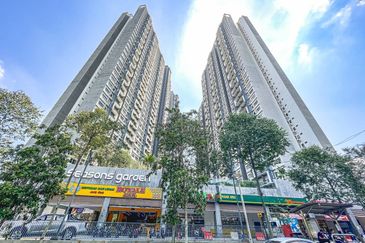
Seasons Garden Residences
Wangsa Maju, Kuala Lumpur
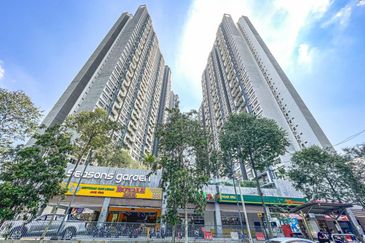
Seasons Garden Residences
Wangsa Maju, Kuala Lumpur

Sri Petaling KL First Floor Shop For Rent
Bandar Baru Sri Petaling, Kuala Lumpur

The Ridge @ KL East (Residensi Rabung KL Timur)
Setapak, Kuala Lumpur

The Ridge @ KL East (Residensi Rabung KL Timur)
Setapak, Kuala Lumpur

Taman Wawasan, Pusat Bandar Puchong
Puchong, Selangor


